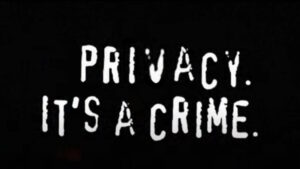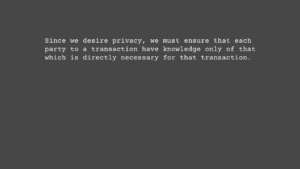With the European Union’s Chat Control proposal vote looming on October 14, 2025, Signal, the privacy-focused messaging platform, has issued a stark warning given Germany’s wavering loyalties.
Reports suggest Germany, a historic champion of privacy rights, may reverse its opposition, paving the way for a surveillance regime that’s the digital equivalent of listening in on our living room conversations across Europe.
In a blog post, Signal President Meredith Whittaker stated, “We are alarmed by reports that Germany is on the verge of a catastrophic about-face… In a very real way, it could spell the end of the right to privacy in Europe.”
We are alarmed by reports that Germany is on the verge of a catastrophic about-face, reversing its longstanding and principled opposition to the EU’s Chat Control proposal which, if passed, could spell the end of the right to privacy in Europe. https://t.co/015qmQnIS2
— Signal (@signalapp) October 3, 2025
Under the guise of protecting children, the latest Chat Control proposals would require mass scanning of every message, photo,
and video on a person’s device, assessing these via a government-mandated database or AI model to determine whether they
are permissible content or not.
The proposal mandates mass scanning of private messages, photos, and videos via client-side technology, undermining end-to-end encryption. This move, justified under the guise of child protection, risks creating a surveillance free-for-all, compromising national security and exposing intimate communications of citizens, journalists, and activists. Whittaker warned, “If we were given a choice between building a surveillance machine into Signal or leaving the market, we would leave the market.”
As the author of a previous piece on this issue, I’ve already argued that the rhetoric from some MEPs misrepresents the proposal’s impact. I’ve stated that claims of targeted surveillance are misleading; this is an architecture designed for mass monitoring and abuse.
Besides underlining the unprecedented overreach and double-speak which masks the alarming implications of Chat Control, technical exemptions for state communications expose a double standard – rules for plebs, but not for the wannabe oligarchic elite.
The technical consensus highlights backdoors that hackers and hostile states would exploit. This would usher in a system where every word is monitored, stored and processed undermining businesses and trade, while ripping up the social contract in its entirety.
The proposal is an Orwellian nightmare made manifest. And indeed, members of parliament ought to know that 1984 was meant as a warning, not a manifesto.
X users (previously Twitter) have amplified the debate, with some, including @peterktodd, urging the US to declare compliance with Chat Control a criminal offence.
This stance could trigger a regulatory confrontation between the US and EU, as American tech firms like Signal resist surveillance mandates, potentially exiting the EU market. Such a clash would strain transatlantic relations, with privacy advocates warning of global repercussions.
Not good.
Anyway, the only ethical option for Signal if this passes is to refuse to comply. Signal shouldn’t even block the EU: let the EU block them.
It should be the only legal option too: implementing Chat Control is a crime against humanity. The US should explicitly… https://t.co/u0Pa7GP6bY
— Peter Todd (@peterktodd) October 3, 2025
Signal calls on Germany to uphold its principles, urging the Ministry of Justice to oppose the vote. “Good decision-making in Germany could spell the difference between a future where the human right to private communication exists in Europe or one in which Europe’s economic, social, and political security are imperiled,” Whittaker added.
With over a million signatures opposing the proposal, the stakes are high. The world watches as October 14 approaches, teetering on the brink of a privacy crisis.
Call to Action: Join the fight to protect digital privacy! Visit fightchatcontrol.eu to learn more and contact your representatives today.
If you found this article useful, consider sharing it.


